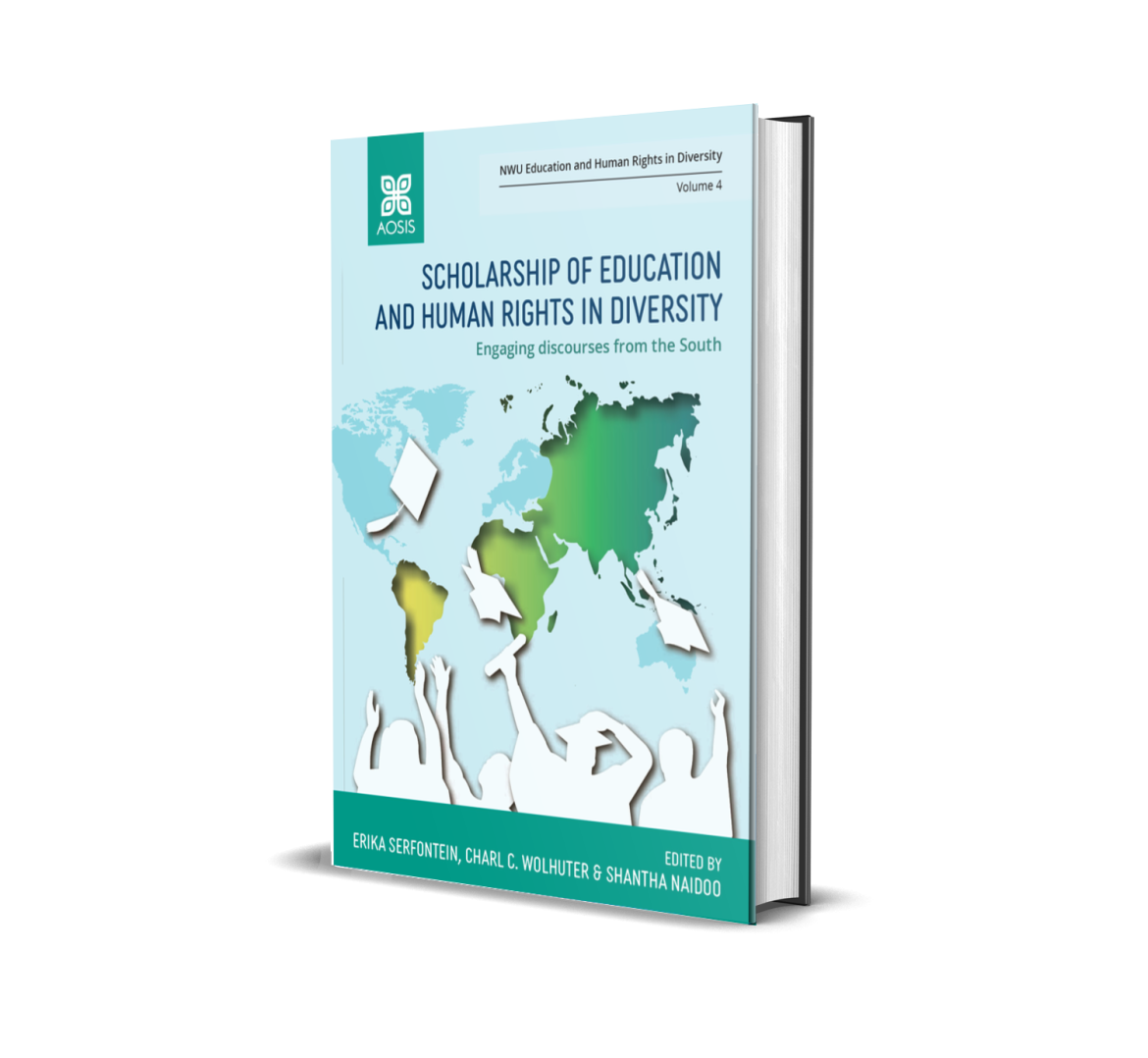Scholarship of education and human rights in diversity: Engaging discourses from the South is published by AOSIS Scholarly Books.
The objective of this book, Scholarship of education and human rights in diversity: Engaging discourses from the South, is to highlight the need and value of imbuing the dynamic intersections between education, human rights and diversity with perspectives from the Global South. The chapters approach key intellectual conundrums of the day from a Global South perspective to reflect a credible scholarly footprint in Africa and in the SADC region. This is deemed timely considering that the field is deeply embedded in western, Eurocentric and overall Global North dominance. This book will provide a Southern perspective on education and human rights in diversity by unpacking each of the following key areas in the intersection between education, human rights and diversity from a Southern perspective: comparative international perspectives, citizenship education, human rights literacies, human rights education pedagogy, learner discipline in schools, aggression and bullying in schools, addressing human trafficking by means of human rights education, social justice, and the decolonisation of human rights and human rights education.
Copyright (c) 2022 Charl C. Wolhuter, Erika M. Serfontein , Shantha Naidoo (Volume editor)
The overall premise of this book is to draw attention to the fact that the three defining features of the world of the early 20th century – the Creed of Human Rights, the belief that education could change society for the better, and the philosophy of celebrating diversity – were shaped in the context of the Global North, and this biased conceptualisation needs to be rebalanced. This book attempts to redress this imbalance by presenting convincing evidence for considering the Global South’s perspective. The book explores the intersection between education, human rights, and diversity. As the authors outline the scholarly discourse surrounding this, they draw attention to the fact that the perspectives of the Global North dominate. At the same time, the Global South is a growing percentage of the world’s population. The change and advances in politics, economics, and education within the Global South are gaining increasingly significant influence. As a result of bringing these novel viewpoints to the fore, the book makes for an interesting read and challenges existing beliefs.
Prof. Carol Robinson, Faculty of Education, Edge Hill University, Lancashire, United Kingdom

